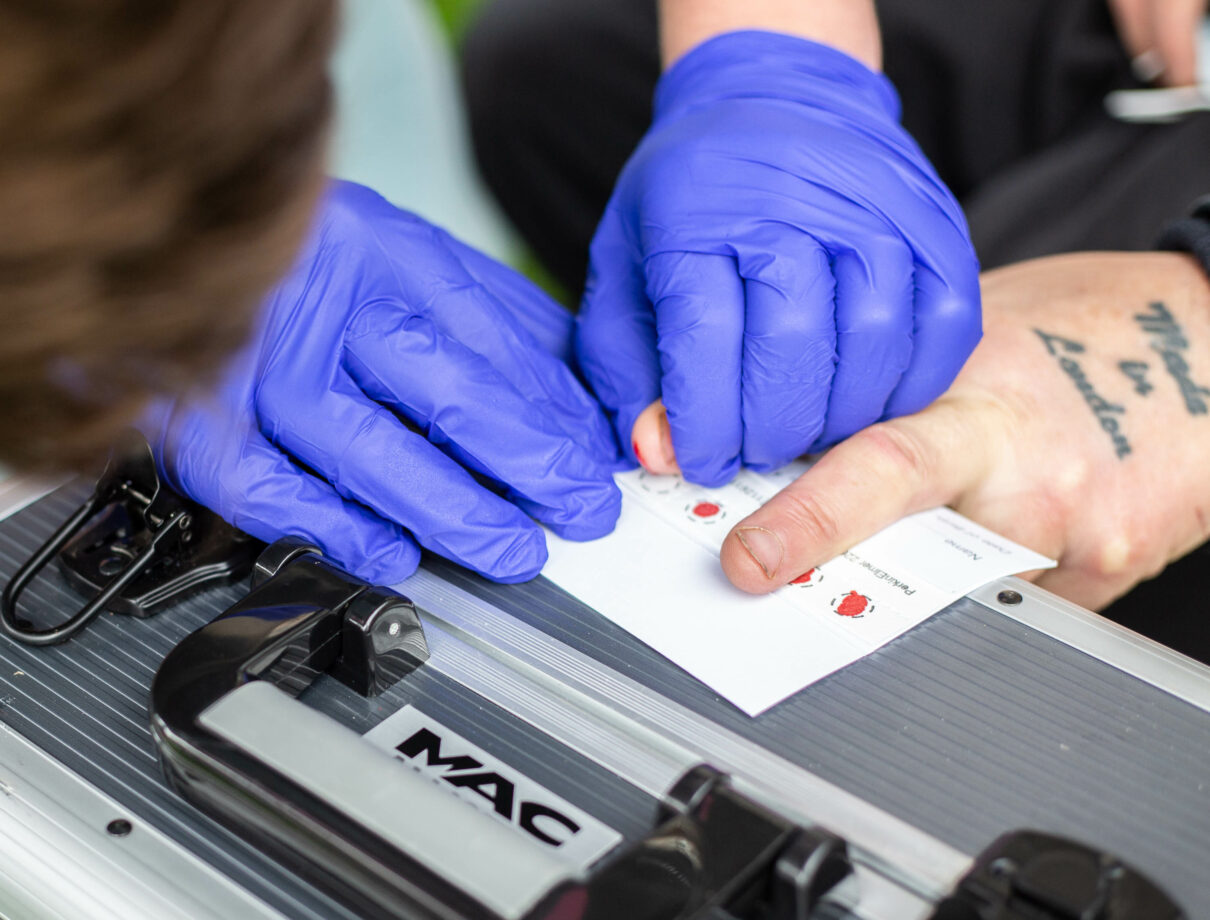
Blood-Borne Viruses

Blood-Borne Viruses
Blood-borne viruses, such as Hepatitis C and MRSA, can be easily spread through sharing injecting equipment and other risky behaviour. Find out how to reduce the risks, book yourself a test and, if necessary, begin treatment.
Hepatitis C
Hepatitis C is a treatable blood-borne virus that can have serious health implications. Hepatitis C is the most common blood borne virus among people who inject drugs. It is generally spread through sharing injecting equipment. People who have injected drugs account for more than 90% of new hepatitis C positive diagnoses.
The virus primarily damages the liver, affecting its ability to perform essential functions. It can also affect other areas of the body.
Hepatitis C can only be contracted through blood. It can be transmitted through sex involving blood or abrasion to the skin (but not through sexual fluids).
Hepatitis C Testing
Testing is the only way to tell if you are Hepatitis C positive. We offer free Hepatitis C testing across our services, including in Needle Exchanges at our Walk-In Centres and also by post through a simple dry blood spot test.
Around 1 in 5 people will clear the virus naturally during the first six months of infection. There is effective medication available for Hep C that involves taking a pill twice daily. If you test positive for the hepatitis C virus, we offer you a treatment referral into Bristol’s hepatology services and further support through our dedicated blood borne viruses nurse.
For more information, visit The Hepatitis C Trust.
HIV
HIV is the most famous blood borne virus. HIV infects the immune system, causing progressive damage and eventually making it unable to fight off infections.
The most common way of transmitting HIV is through sexual intercourse, but it can also be transmitted by sharing injecting equipment.
The only way to get a diagnosis is to complete a HIV test. At BDP we can provide access to a test and help connect you with relevant healthcare and support if you were found to be positive.
For more information about HIV, visit Terrence Higgins Trust
MRSA
MRSA, or Meticillin- resistant Staphylococcus Aureus, is a type of ‘superbug’ bacteria that lives on the skin and can cause infections, ranging from minor to life-threatening, when it enters the bloodstream.
While it can be treated with some antibiotics, it does not respond to all of them, so it is important to be aware of the source of the bacteria.
Wounds, injuries or other punctures in the skin can easily become infected, so you are more likely to get infected if you inject. Groin injecting is a particular risk as bacteria live easily in warm and moist places. The risk of infection increases when you share injecting equipment.
MRSA is well known for spreading in hospitals because of the large amounts of people passing through and with patients having healing wounds and existing poor health.
For more information, visit NHS Choices.

